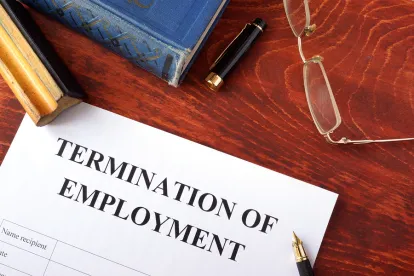As we previously discussed in June 2022, the National Labor Relations Board (“NLRB” or the “Board”) pursued a 10(j) injunction against a Starbucks in Buffalo, New York after it fired workers for allegedly engaging in union organizing activities—an action taken based on an initiative articulated by NLRB General Counsel Jennifer Abruzzo (see more information on this initiative here). Since then, Starbucks has faced numerous petitions for injunctive relief from the NLRB in regions across the country. Well, it looks like Starbucks is not the only high-profile company experiencing pressure from the GC in the form of 10(j) petitions for their conduct—Amazon has just found itself in the situation.
On November 18, 2022, Judge Diane Gujarati of the Eastern District of New York (“EDNY”) partially granted a temporary injunction pursuant to Section 10(j) of the National Labor Relations Act (“NLRA” or “Act”) against Amazon after it fired one of its workers for allegedly engaging in union-related activities in violation of Section 8(a)(3) of the NLRA. Amazon fired a warehouse worker in its Staten Island facility in April 2020 based on an alleged verbal altercation between him and another co-worker. The Amazon employee filed an unfair labor practice charge on June 17, 2020 in Region 29, claiming that he was fired as a result of his organizing activity.
The Regional Director found merit in the charge and issued a complaint against Amazon. In April 2022, Administrative Law Judge Benjamin Green held that Amazon’s firing was a “discriminatory discharge” in vi0lation of the Act, and ordered Amazon to reinstate him. Amazon appealed the decision and the case was transferred to the Board.
On July 8, 2022, the Regional Director for Region 29 petitioned for a 10(j) injunction in the EDNY against Amazon seeking to force Amazon to, among other things:
-
cease and desist from activity that violates the Act;
-
read such cease and desist order to employees;
-
reinstate the warehouse employee to his position; and
-
expunge the adverse employment action from the individual’s employment records.
In her November 18th decision, Judge Gujarati held that the evidence “amply support[ed]” the Board’s position that the employee was discharged in violation of the Act and, therefore, granted part of the Board’s 10(j) petition requiring Amazon to cease and desist from activity that violates the Act. Judge Gujarati also ordered that Amazon post the order within its Staten Island warehouse and read the order aloud during a facility meeting with the “widest possible employee attendance.” However, Judge Gujarati denied the remaining portions of the Board’s petition requesting that Amazon perform remedial actions related to the worker’s employment, including reinstating him. The Board argued that the worker’s termination not only discouraged employees from engaging in protected activity, but also discouraged them from garnering support for the union and, therefore, reinstatement and an expungement of the employee’s record was necessary. Judge Gujarati disagreed to implement the requested injunction as to these issues, finding that the Board did not present evidence that the termination continued to have any “appreciable effect” on the union’s efforts or on employee willingness to engage in protected concerted activity.
While a 10(j) injunction is generally referred to by the Board and the courts as an “extraordinary remedy,” the current NLRB General Counsel has favored the use of this remedy on numerous occasions over the past couple of years, and she has indicated as much in her public memoranda. The Board’s recent successful use of 10(j) injunctive relief against companies like Starbucks and Amazon for alleged unfair labor practices during the midst of union organizing campaigns appears to indicate that this may continue in the future. This could have potentially significant ramifications for employers who could be routinely hauled into federal court for alleged labor law violations and be subjected to potential penalties of contempt of court for failing to comply with federal court orders if the companies engage in future violations.
As always, we will continue to keep you apprised of any updates in this developing area.



 />i
/>i
